Abstract
STUDY OBJECTIVES--To evaluate the impact of an AIDS education programme designed for young adults. DESIGN--A randomised trial with a pre-post test design. SETTING--Participants were drawn from six youth training centres in the city of Nottingham, England. STUDY POPULATION--All trainees aged 16-19 years attending the six centres were included in the sample and centres were randomly allocated to experimental (n = 173) and control (n = 164) groups. The response rate to both questionnaires was high (71%). MEASUREMENTS AND MAIN RESULTS--Data on sexual behaviour, knowledge, and attitudes towards HIV/AIDS were obtained by confidential questionnaire. Two thirds of the sample were sexually active. There were no differences between groups at pre-test and no differences by sex. The experimental group had a significantly higher level of knowledge than the control group post-test. Significantly more experimental than control trainees knew post-test that HIV could be transmitted via anal sex and through broken skin. In addition, twice as many experimental (53%) as control trainees (25%; p < 0.001) were aware that a cure for AIDS was unlikely in the near future. There were no observed effects on sexual behaviour, intentions, or attitudes. CONCLUSIONS--The Streetwize UK educational programme had a significant impact on young adults' knowledge of HIV/AIDS transmission and prevention in the short term. If community based AIDS education is to do more than merely inform, however, resources must be made available for peer led interventions and skills training.
Full text
PDF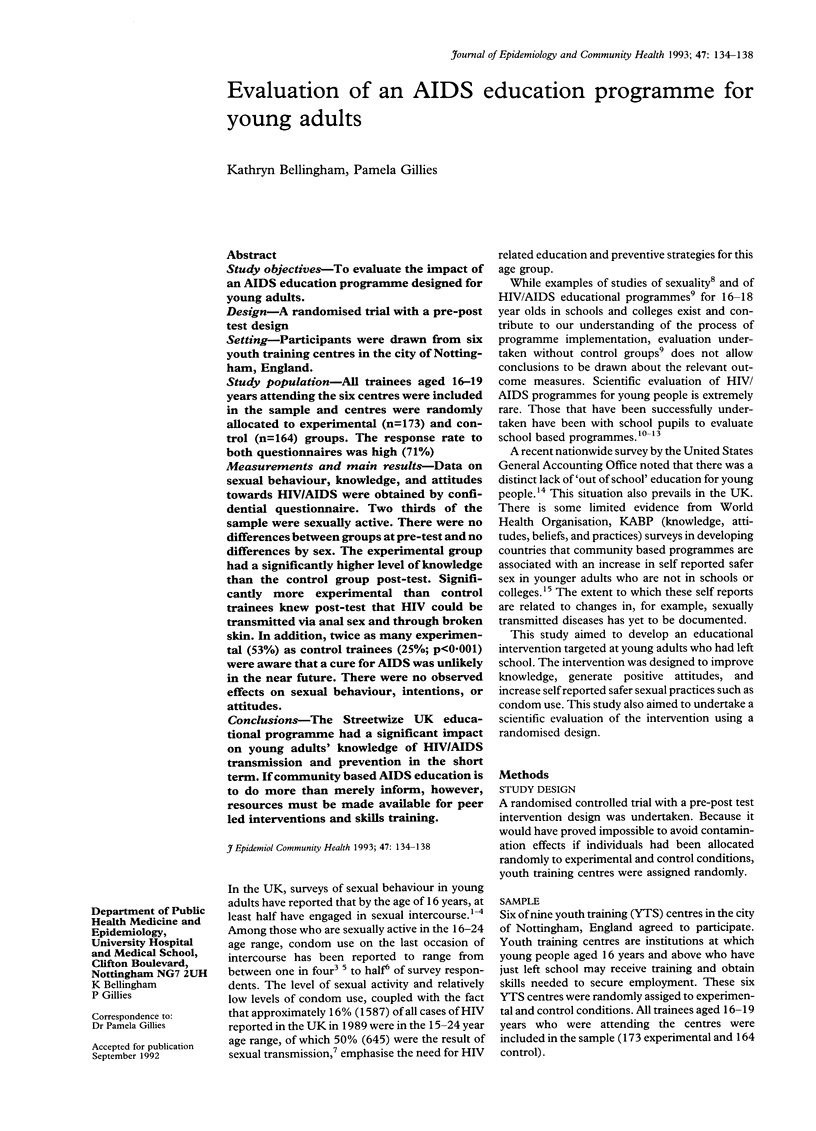
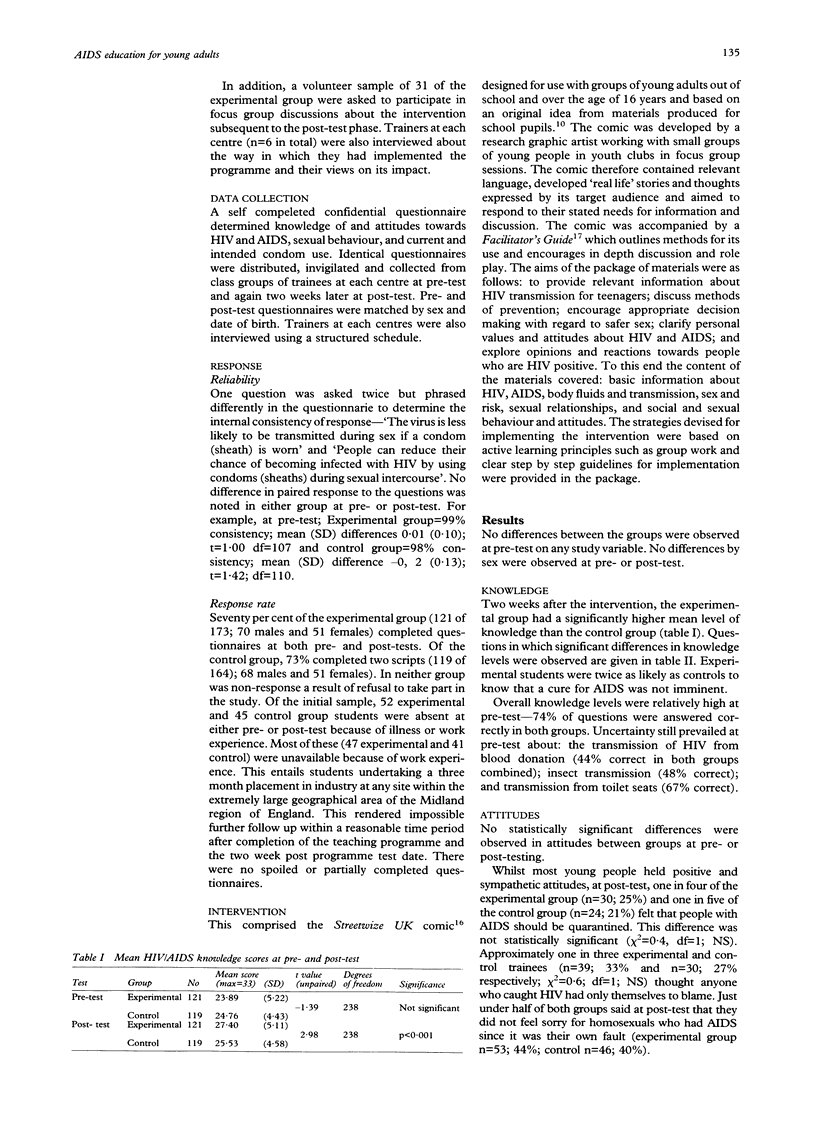
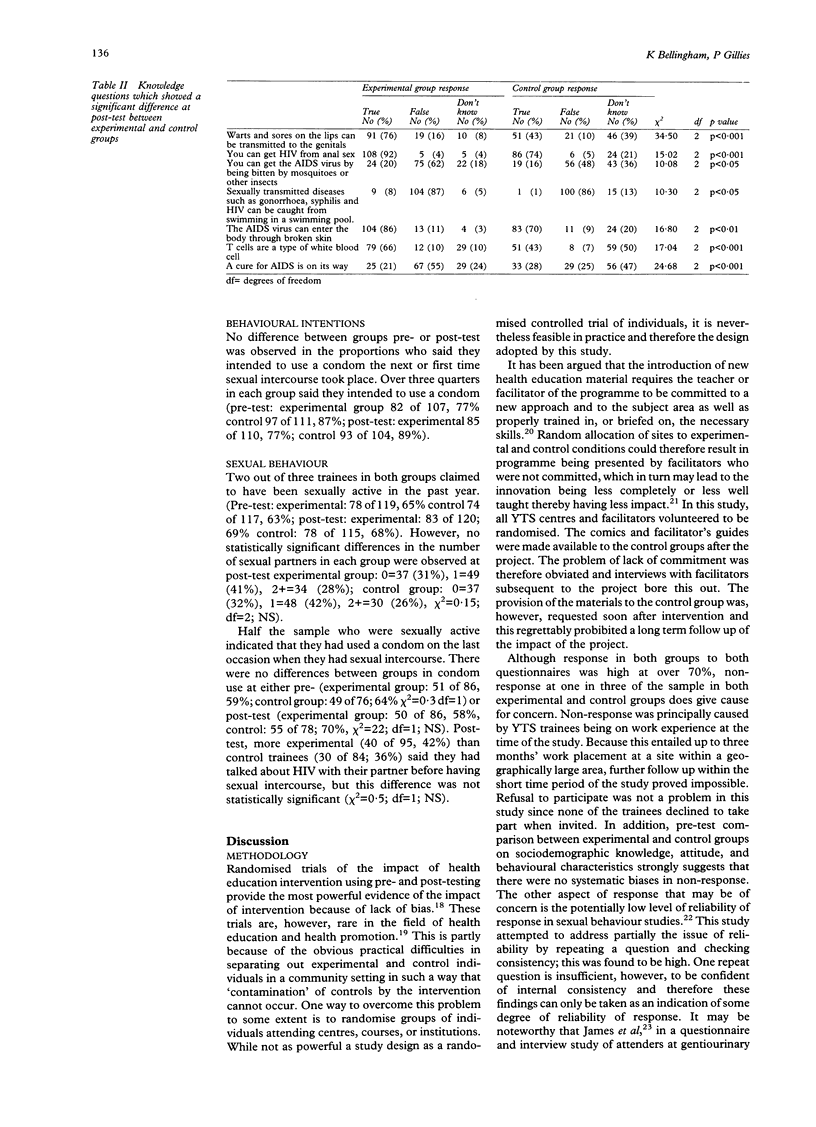
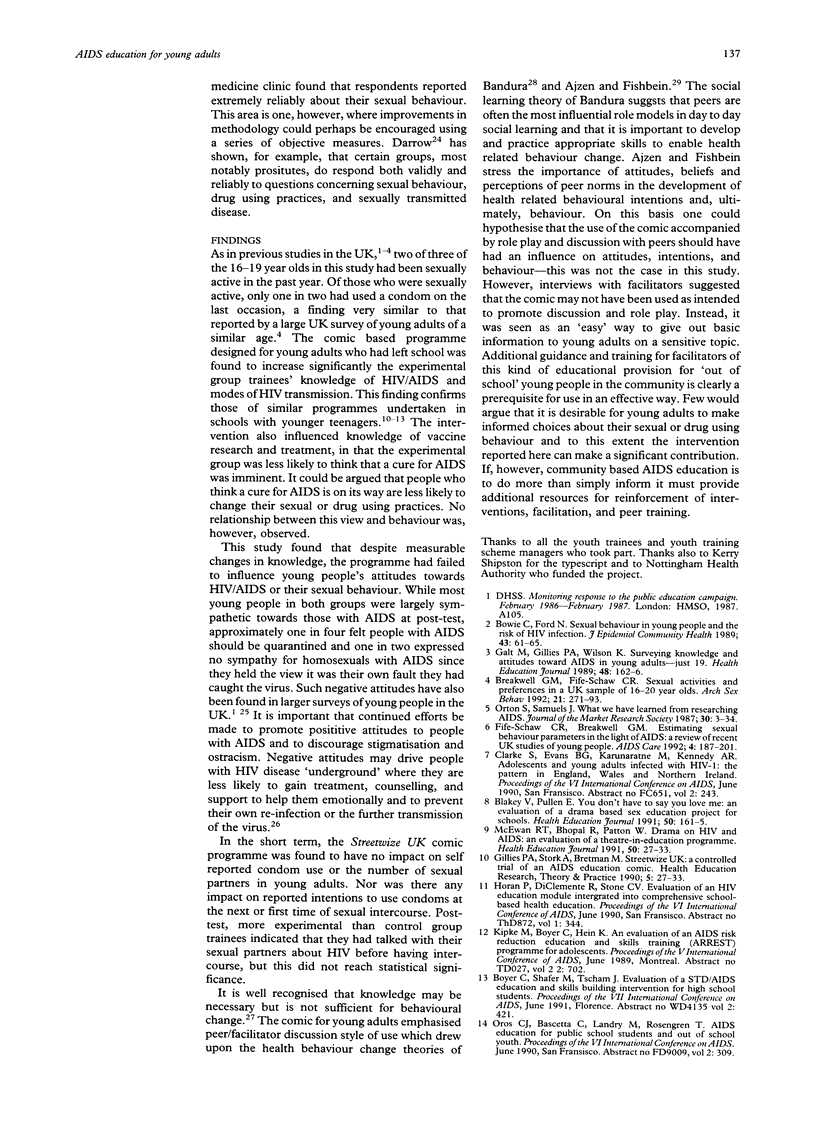
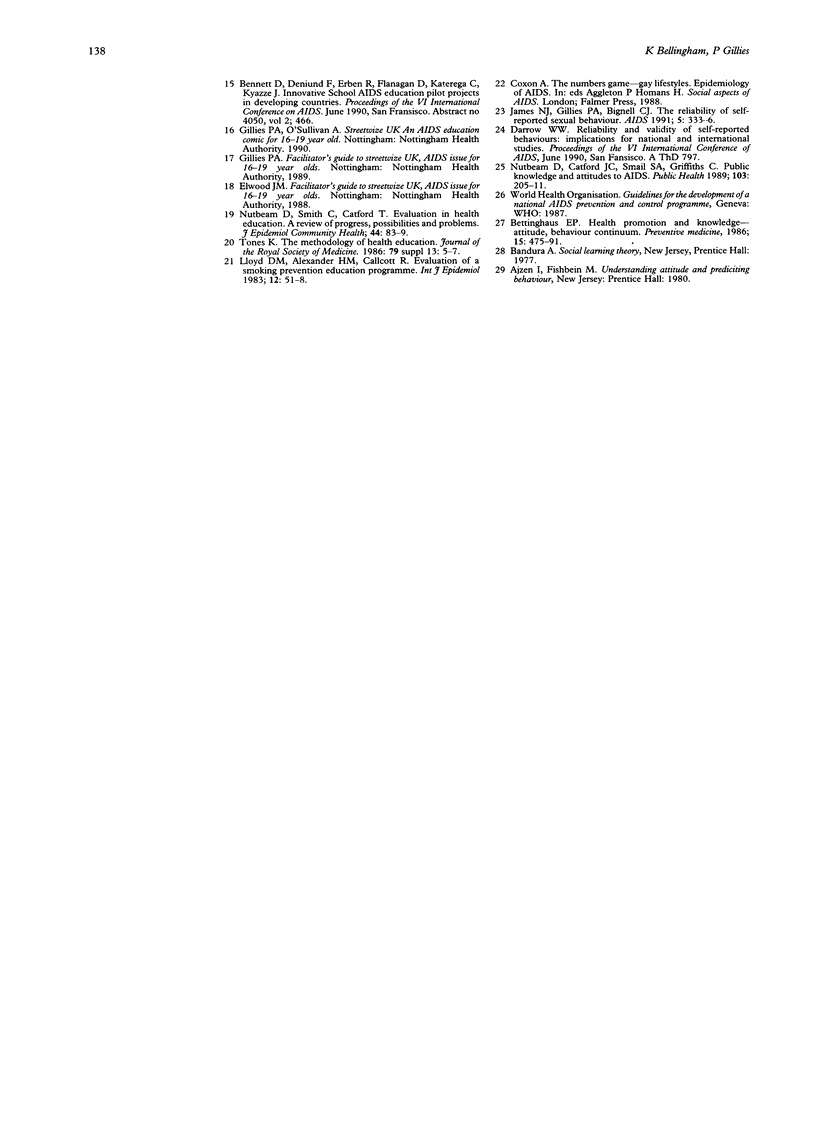
Selected References
These references are in PubMed. This may not be the complete list of references from this article.
- Bettinghaus E. P. Health promotion and the knowledge-attitude-behavior continuum. Prev Med. 1986 Sep;15(5):475–491. doi: 10.1016/0091-7435(86)90025-3. [DOI] [PubMed] [Google Scholar]
- Bowie C., Ford N. Sexual behaviour of young people and the risk of HIV infection. J Epidemiol Community Health. 1989 Mar;43(1):61–65. doi: 10.1136/jech.43.1.61. [DOI] [PMC free article] [PubMed] [Google Scholar]
- Breakwell G. M., Fife-Schaw C. Sexual activities and preferences in a United Kingdom sample of 16 to 20-year-olds. Arch Sex Behav. 1992 Jun;21(3):271–293. doi: 10.1007/BF01542997. [DOI] [PubMed] [Google Scholar]
- Fife-Schaw C. R., Breakwell G. M. Estimating sexual behaviour parameters in the light of AIDS: a review of recent UK studies of young people. AIDS Care. 1992;4(2):187–201. doi: 10.1080/09540129208253090. [DOI] [PubMed] [Google Scholar]
- James N. J., Bignell C. J., Gillies P. A. The reliability of self-reported sexual behaviour. AIDS. 1991 Mar;5(3):333–336. doi: 10.1097/00002030-199103000-00016. [DOI] [PubMed] [Google Scholar]
- Nutbeam D., Catford J. C., Smail S. A., Griffiths C. Public knowledge and attitudes to AIDS. Public Health. 1989 May;103(3):205–211. doi: 10.1016/s0033-3506(89)80076-9. [DOI] [PubMed] [Google Scholar]


